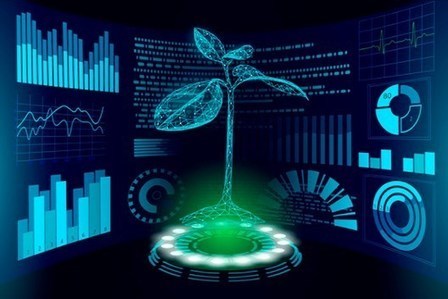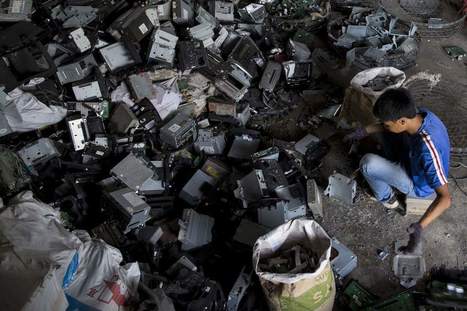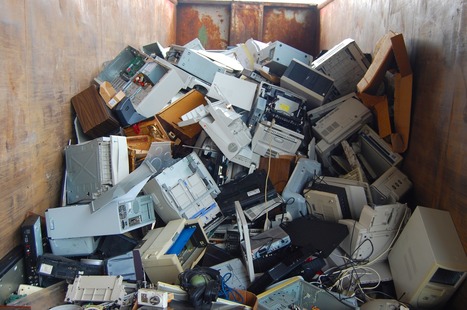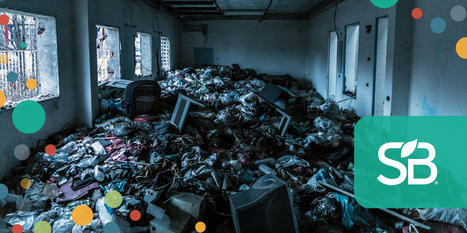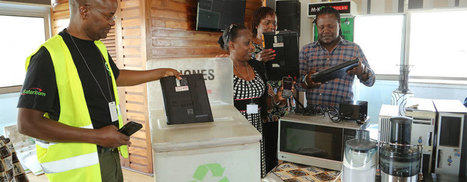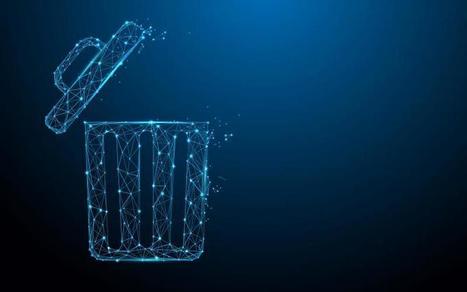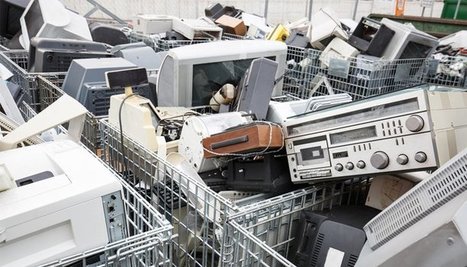 Your new post is loading...

|
Scooped by
EcoVadis
February 16, 2022 5:41 AM
|
The amount of electronics will increase and the use of raw materials in the sector is expected to double by 2050. The amount of electronic waste has also almost doubled over the past 16 years, and only 20 percent of this waste is collected efficiently. The EU therefore calls for more sustainable solutions from the electronics industry. VTT is developing them by combining printed electronics, bio-based materials and ecodesign thinking.
The environmental load of the electronics industry can be significantly reduced by moving from traditional manufacturing processes to printed electronics and from fossil-based materials to bio-based materials. By using printing processes, up to 90 percent of fossil materials can be replaced in some applications. At the same time, energy consumption may decrease to one fifth compared to traditional processes. Ecodesign, on the other hand, promotes the efficient use, recycling and recovery of valuable materials.

|
Scooped by
EcoVadis
October 21, 2020 1:53 AM
|
Covering the period 2020-25, the strategy is based on the perception that, while ICT is often championed as a means to supporting environmental sustainability, it can also contribute to the problem and needs a careful approach to ensure that government’s use of digital technology does not undermine greening efforts.
It is aimed at meeting five of the UN Sustainable Development Goals – sustainable energy for all, resilient infrastructure, sustainable consumption and production, climate adaptation and partnerships with the technology sector – and at producing five outcomes – reduced carbon and cost, increased resilience, increased responsibility for doing the right thing, increased transparency and collaboration, and increased accountability.
A central element is the listing of three business rules, developed with the technology industry, to be applied to all ICT procurements and reported on annually.
The first is to work towards meeting net zero emission targets by 2050 or sooner, with suppliers required to commit to the target and follow up with roadmaps and action plans. Second is support the circular economy, aiming for zero waste to landfill and an increase in the use of recycled and refurbished ICT kit by 2025.

|
Scooped by
EcoVadis
June 23, 2020 1:51 PM
|
E-waste recycling is an incredibly important issue we all need to think about. India is a huge market for electronic devices. We purchase phones, tablets, laptops, and smart TVs on a regular basis. The market size is also getting bigger each day, thanks to the increase in our per-capita income and a relative drop in the prices of components. This is amongst the key factors that lead to the massive growth of electronic waste (commonly called e-waste) in the country. As we're celebrating World Environment Day today, we should also understand how we can safely dispose of e-waste in the country.
According to a study jointly released by the Associated Chambers of Commerce and Industry of India (ASSOCHAM) and NEC, India is among the top five countries in e-waste generation — next only to China, US, Japan, and Germany. The country generated e-waste of about 20 lakh tonnes per annum, while it recycled about 4,38,085 tonnes per annum, as per the study. This suggests that we dump a large amount of our e-waste without following a proper procedure. So, here are the steps we should take to safely dispose of e-waste in India.

|
Scooped by
EcoVadis
October 14, 2019 3:01 AM
|
Closing the carbon loop with recycled raw materials is a core element in the development of a circular economy. Polymer provider Covestro has developed a new concept for post-consumer recycled (PCR) polycarbonate waste and its use in the electronics industries.

|
Scooped by
EcoVadis
April 19, 2019 1:01 AM
|
The International Labour Organization is calling for urgent action to better manage electric and electronic waste (e-waste) produced around the world so it can be turned into a valuable source of decent work. Representatives of governments and workers' and employers' organizations agreed at an April 9-11 meeting at the ILO headquarters in Geneva, Switzerland, that governments should increase and promote investments in waste management infrastructure and systems at all levels to manage the rapidly growing flows of e-waste.

|
Scooped by
EcoVadis
March 11, 2019 4:37 AM
|
Apple’s Zero Waste programme has helped suppliers recycle or reuse 1m tonnes of rubbish in three years, according to the tech giant’s 2019 Supplier Responsibility Progress Report. It stated: “In 2018, our suppliers achieved UL Zero Waste certification for all final assembly test and packaging facilities across iPhone, iPad, Mac, Apple Watch, AirPods, and HomePod.”This means that at least 90% of waste is no longer being sent to landfill sites. It marks a “significant goal” in the company’s efforts to achieve a zero waste supply chain, it said.
|

|
Scooped by
EcoVadis
March 25, 2021 7:05 AM
|
Cisco, Dell, Google and Microsoft are among the founding members of the alliance — which sees the biggest names in tech, consumer goods and waste management working together to enable a circular economy for electronics by 2030.

|
Scooped by
EcoVadis
June 25, 2020 1:56 AM
|
With the high rate of tech evolution, and more people wanting to buy high-tech equipment at a cheaper price, there is an influx of counterfeit products in low & middle-income countries. This is the same for the Kenyan market where the lifecycle of many electronic devices is shorter than the genuine products. This has led to high levels of e-waste production thus threatening the entire value chain.
It is estimated that in Kenya over 35 million people use electronic devices, mainly mobile phones. Safaricom for example, introduces about 1.2 million handsets into the market every year. This translates to about 120 tonnes of electronics once they reach end of life. As a responsible business, Safaricom believes it is their duty to do ‘their-part’ by running a comprehensive e-waste management programme.

|
Scooped by
EcoVadis
May 12, 2020 5:57 AM
|
Unrepairable phones and laptops are one of the scandals of our throwaway society. But the pushback is building – and the coronavirus crisis has added more pressure for change

|
Scooped by
EcoVadis
July 30, 2019 11:58 PM
|
n for its planet-friendly incentives, Google seems ready to take another step towards sustainability. Having just adopted its first circular economy strategy ever, the tech giant says it wants to spearhead the way the IT sector deals with materials and waste. Google has been among the first supporters of the Ellen MacArthur Foundation, a key global advocate of the circular economy approach. The company’s new vision is creating “a circular Google in a sustainable world” in line with the Foundation’s recommendations.

|
Scooped by
EcoVadis
March 21, 2019 1:05 AM
|
This year will be a watershed moment for the smart cities movement, as technology companies will be forced to demonstrate return on investment (ROI) on an accelerated time horizon. Those products and services that are low cost, leverage existing city assets, and focus relentlessly on process improvement for city systems will be the big winners in 2019. This can only be achieved if the public works and sustainability departments of a city are on the same page. Technology can bring these two departments of city government together, ensuring that they are oriented towards delivering more effective service and more sustainable outcomes.

|
Scooped by
EcoVadis
February 15, 2019 6:59 AM
|
More than 44 million tonnes of electronic and electrical waste (e-waste) was produced globally in 2017, with a majority being sent to landfill. It reveals the annual value of global e-waste is more than $62.5 billion (£48.5bn) – more than the GDP of most countries. The report from the Platform for Accelerating the Circular Economy (PACE) and the UN E-Waste Coalition adds less than 20% of e-waste is “formally recycled”, with 80% either ending up in landfill or being “informally recycled” – much of it by hand in developing countries, exposing workers to hazardous substances such as mercury and lead.
|

 Your new post is loading...
Your new post is loading...





